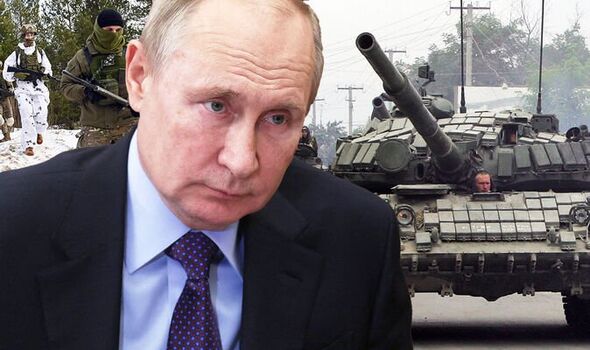
As Russia faces the fallout from its failed invasion of Ukraine, warnings have emerged that Russian loyalists may turn against Vladimir Putin’s plans for the country. The chief envoy on Ukraine, Dmitry Kozak, reportedly informed Putin at the war’s onset that he had negotiated a provisional deal with Kyiv, aiming to meet Russia’s demand for Ukraine to stay out of NATO. Kozak believed this agreement eliminated the need for a large-scale occupation of Ukraine, but Putin rejected the deal and proceeded with the military campaign.
Insiders close to the Russian leadership revealed that Kozak’s recommendation to adopt the deal is now being reported by Reuters for the first time. Carnegie Endowment’s Andrei Kolesnikov suggested that within the Russian elite, there are individuals who are not supportive of Putin but are constrained to simulate obedience for survival within the system. Kolesnikov added that, in the longer term, they may be prepared for disobedience.
Despite these potential internal tensions, there is currently no sign of Putin changing course, according to BBC News. Putin had asserted before the war that NATO’s expansion and the potential inclusion of Ukraine posed an existential threat to Russia, justifying his military response.
However, when presented with Kozak’s deal, Putin expressed dissatisfaction, stating that the concessions negotiated by his aide did not go far enough. The Russian leader expanded his objectives to include annexing parts of Ukrainian territory, leading to the abandonment of the deal, according to insider sources. Kremlin spokesman Dmitry Peskov dismissed these findings, stating that they had “absolutely no relation to reality.”
The negotiation process, which seemingly served as a smokescreen for Russia’s invasion plans, has raised questions about the sincerity of Russia’s intentions. Mykhailo Podolyak, an adviser to the Ukrainian president, acknowledged that Russia had used the talks as a diversion but did not provide details about the substance of the negotiations or confirm the existence of a preliminary deal. As the aftermath of the failed invasion unfolds, the revelations about internal disagreements within the Russian leadership highlight the complexities surrounding Putin’s strategies and the potential challenges he may face from within his own ranks.
RELATED ARTICLES
- After Fooling the People to Reelect Putin, Russia now announces More Cannon Fodder Mobilizations
- Russia Fires Barrage of North Korean Missiles at Kyiv After US Visit
- Ex-Wagner fighters Join Free Russia Army's Battle to Liberate Russia from Putin Occupation
- Hungary Becomes First EU Country to Congratulate Putin for Winning the 'Elections'
- Putin says NATO Troops are already in Ukraine But Russia is Still Winning











